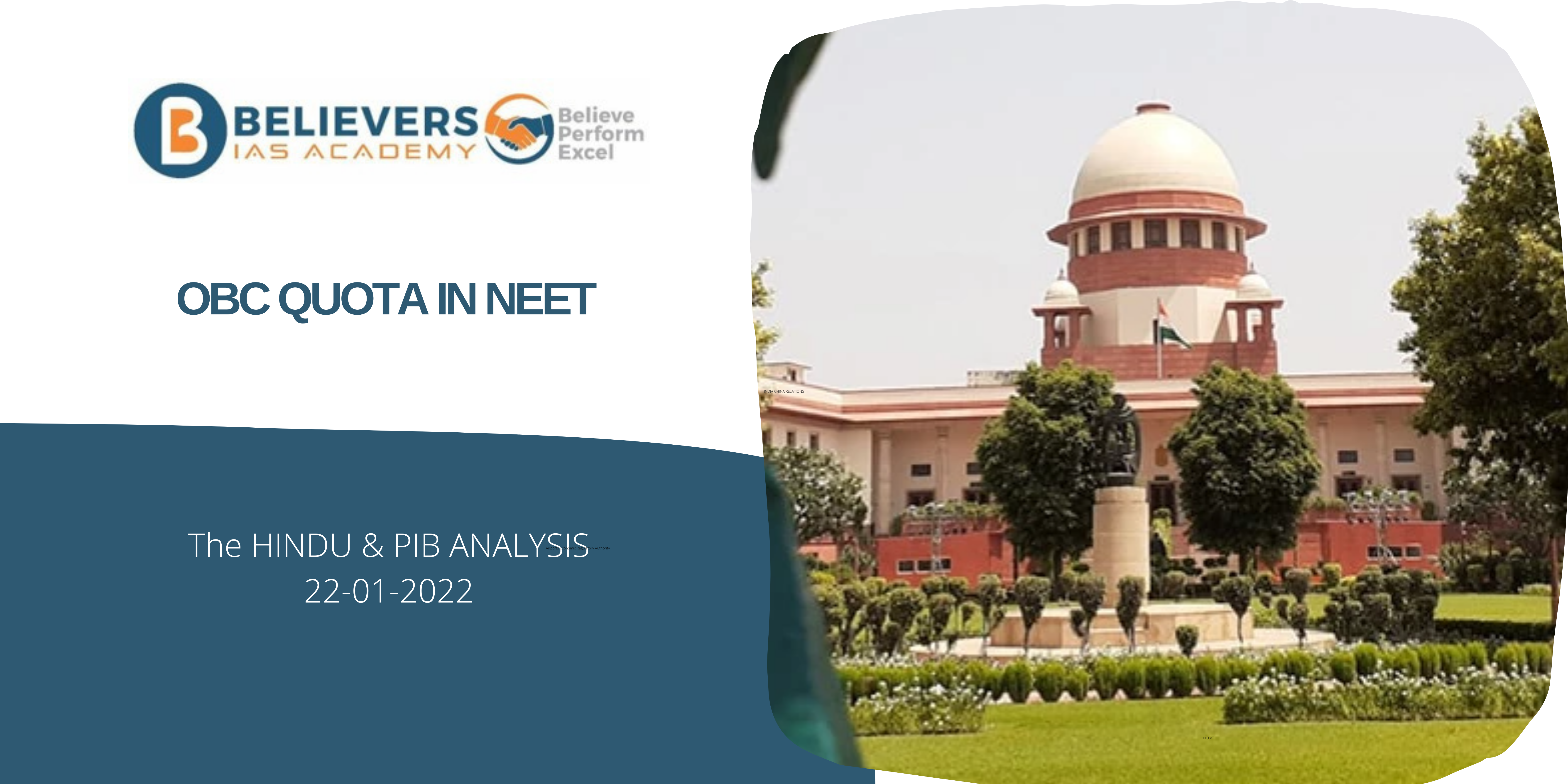OBC Quota in NEET
Context:
- SC upholds OBC quota in NEET
- The Supreme Court on Thursday upheld the constitutional validity of reservation for Other Backward Classes (OBC) candidates in the All India Quota seats for the National Eligibility-cum-Entrance Test (NEET) for undergraduate and postgraduate medical and dental courses, noting that “reservation is not at odds with merit” in open competitive examinations.
Judiciary’s Perspective:
- “If open examinations present equality of opportunity to candidates to compete, reservations ensure that the opportunities are distributed in such a way that backward classes are equally able to benefit from such opportunities which typically evade them because of structural barriers.
- This is the only manner in which merit can be a democratising force that equalises inherited disadvantages and privileges. Otherwise claims of individual merit are nothing but tools of obscuring inheritances that underlie achievements,” a Bench of Justices D.Y. Chandrachud and A.S. Bopanna observed.
- The court said an open competitive exam only ensures formal equality and does not end widespread ingrained inequalities in the availability of, and access to, educational facilities to certain classes of people, including the OBC.
Multiple privileges
- The privileges that accrue to forward classes are not limited to having access to quality schooling and access to tutorials and coaching centres to prepare for a competitive examination but also includes their social networks and cultural capital (communication skills, accent, books or academic accomplishments) that they inherit from their family, Justice Chandrachud said.
- The cultural capital ensures that a child from the forward classes is trained unconsciously by the familial environment to take up higher education or high posts commensurate with their family‘s standing.
- This works to the disadvantage of individuals from social backward classes who are first-generation learners and come from communities whose traditional occupations do not result in the transmission of necessary skills required to perform well in open examination.
Source: THE HINDU.

